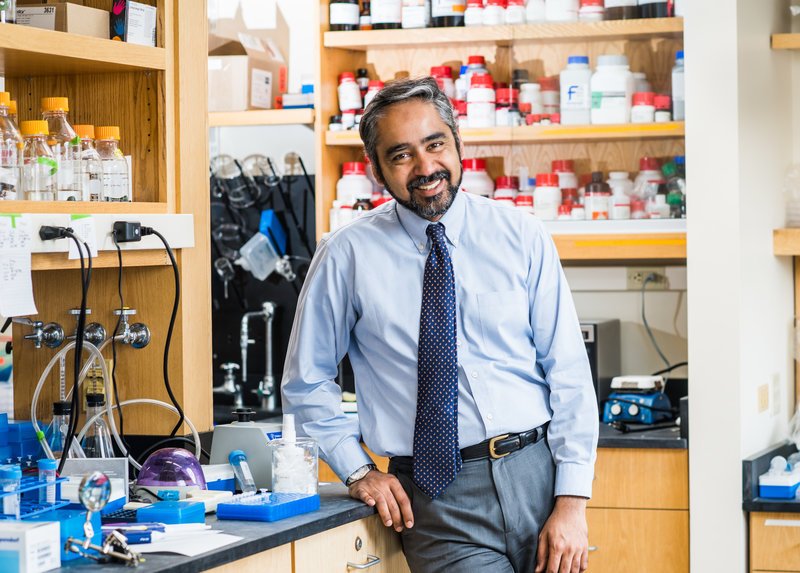Dr. Zaman: Professor in Biomedical Engineering on Multidisciplinary Research to Conquer Global Health Inequities
Interviewed and written by Noor Mchallah, senior writer & editor
Muhammad Zaman (Ph.D.), a Professor at Boston University who specializes in Biomedical Engineering, has a very interesting background in the context of global health. Born in 1977, Zaman grew up in Pakistan and often assessed the environment around him in regards to health equity. About 12 years ago, Zaman decided to spend part of his time researching the challenges that lead to such inequities in an effort to improve the livelihoods of those globally.
Four words: equitable access to healthcare. Zaman emphasizes the need for better policies, technological advancements, and a deeper understanding of antiracism to ensure that “everyone gets good healthcare no matter who they are and where they reside.” He has established these ideologies by familiarizing himself with the work of scholars and global health practitioners such as Paul Farmer
Zaman’s experiences “as a person, as a Muslim, as someone who has come to the US as an immigrant,” and the inquities he encountered in the United States and abroad led to his growing interest in closing gaps in global health.
Currently, Zaman is researching two primary things - (1) access to health care among forcibly displaced communities and (2) the role of technology and ethical use of technology in improving global health. Questions involving antimicrobial resistance (AMR) and environmental degradation are involved within his research as they both fall within the topic of refugee health and access to healthcare.
Zaman is analyzing access to quality of medicines, as counterfeit medicines are often available and utilized by those that are vulnerable. He seeks to understand how technological tools can detect such medicines to reduce the availability of counterfeit medicines.
He is also analyzing the impact of medicine and the quality of medical care among women as well as genital health. In the realm of maternal health, he is looking at the rise in infections for pre and post delivery care. Additionally, Zaman is examining various issues linked to the lack of available care, such as post partum hemorrhaging, and the potential impact of improved technology.
Working with doctors, physicians, and policy makers has allowed Zaman to have a multidisciplinary approach to his work. This has shaped his understanding of the kinds of projects that can be implemented, and perhaps improved, to respond to the health inequities in lower and middle income countries.
“The challenges on the ground can be very different from what you read in academic papers,” said Zaman. With this perspective, he understands health inequities in a realistic and personal manner that allows him to witness first-hand how various populations are struggling.
Dr. Muhammad Zaman at the field site
By traveling and working with various communities, Zaman has developed a deeper sense of purpose in his own research. This has transformed his life in a number of ways, giving him an opportunity to learn with and from colleagues from different disciplines.
“We often think about people who are displaced or who have fallen on a hard time as people who are not like you and I,” reflected Zaman.
Zaman recalled a simple interaction he had with two women in Lebanon when he was near the Syrian border; one was talking about her tomato plants and the other was talking about her children.
“Our perception is rooted in reducing the humanity of people and thinking about them as not full human beings with aspirations, desires, and dreams,” said Zaman. He hopes that people recognize that these populations deserve humanity, not our pity. Moreover, they have conversations and goals just like everyone else.
When asked what the biggest challenge facing the developing world today is, Zaman responded “forced inequity.” This can be seen with the current pandemic and COVID vaccines not being universally available.
“There needs to be a multidisciplinary perspective with an ethical, political, economic, and socioeconomic dimension to conquer global health inequities,” said Zaman.
He also emphasized the problems that occur when decisions are made far from people who are actually on the ground. Zaman emphasized that in order to ensure that solutions are effective, we must include those who are directly impacted by the decisions in the decision-making process.
Zaman believes that studying global health is important because it gives people an opportunity to engage across disciplines, including ethics and philosophy. He suggests that global health students work alongside with the community to challenge their notions in a much more rigorous way.
Zaman continues to work on groundbreaking health issues and solutions for people globally. The most transformational part of his work, Zaman said, involves the “generosity of people from all over the world, constantly being as kind and hospitable as possible.”
““Our perception is rooted in reducing the humanity of people and thinking about them as not full human beings with aspirations, desires, and dreams.” ”


